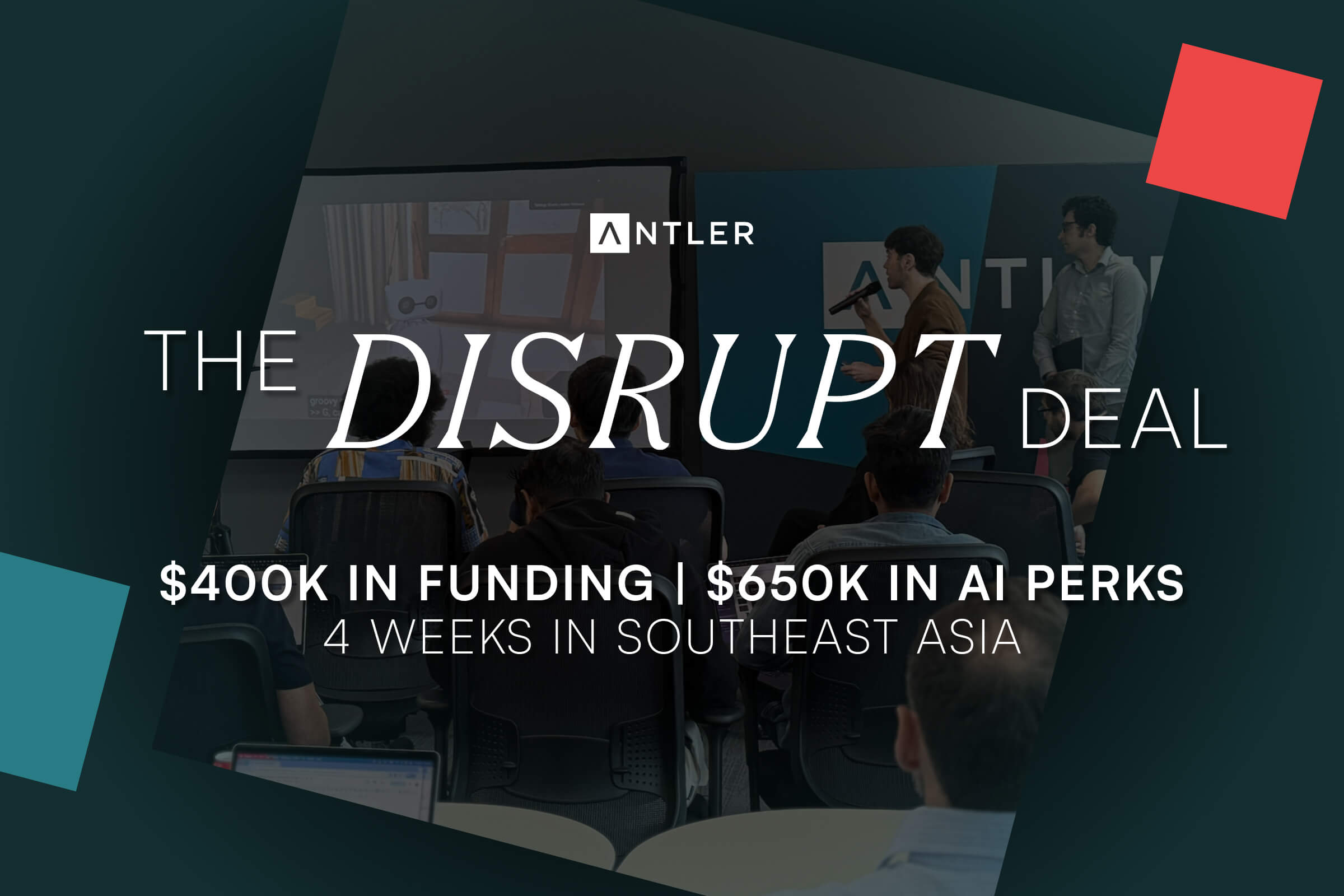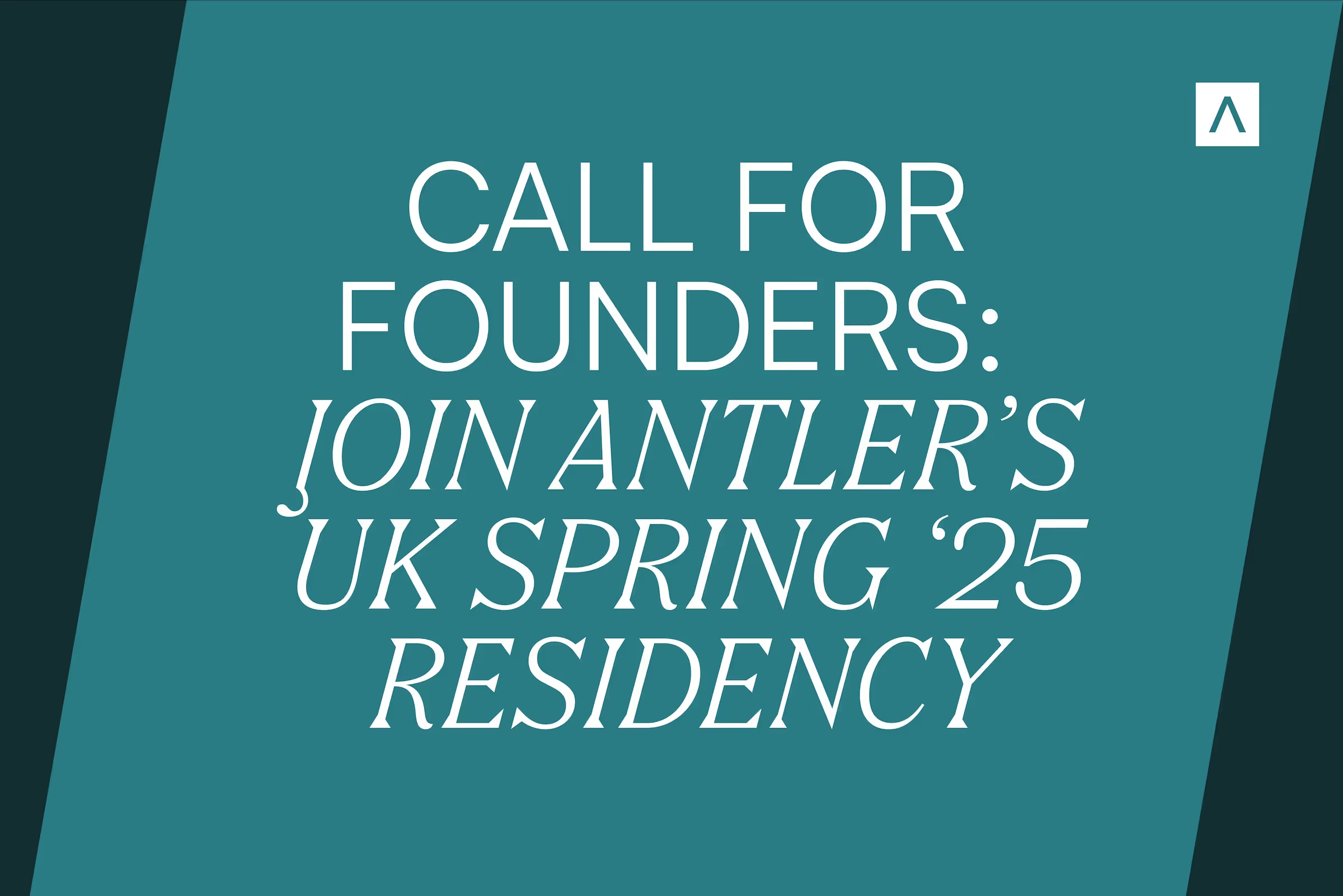Angel investing and early-stage VC investing have a rich history in the startup ecosystem, playing a crucial role in developing the biggest names in tech. I’ve been an active angel investor over the last decade, making over 50 investments in the UK, the US, and beyond. Now, I’m a partner at Antler, a global VC firm investing in early-stage businesses, and I've noticed some surprising differences in how I approach angel vs. VC investing.
There are the obvious differences, like angels invest their own money whilst VCs invest other people's money and cheque sizes are typically much smaller for angels, but here are my top five unexpected lessons and how founders raising money can benefit.
1) VCs raise money too
We all know VCs are investing other people’s money, but many forget that VCs also had to pitch for investment to get this money! Angels have amassed their capital through their hard work and efforts, but not directly raising it from others.
I’ve pitched Antler to angels, family offices, pension funds, wealth managers and more. As a result, I definitely have more empathy for founders pitching to me now as I’m living their experience too!
What this means for founders: Angels are typically empathetic towards the struggles of growing a business, but remember that VCs will have empathy for pitching and getting rejected - play into this psychology for your interactions with them.
Pro tip: This only applies to the partners / GPs, it won’t work with the more junior levels as they’re not actively involved in fundraising.
2) Importance of investment thesis and mandate
Nearly all VCs will have an investment thesis (what industries/markets/stages they will invest in) and a mandate (what valuations and cheque size they will invest in) published on their website. Most angels won’t have any information about their investments at all, and only some will have detailed thesis and mandate.
Given their deal flow and networks, it’s likely angels will focus on specific areas - however, they do not have to justify to their investors when they depart from this. I’ve seen angels in a syndicate say things like “I don’t know the industry, but the quality of the founders and the Tier 1 VC investors mean I’m in”. By contrast, VCs have raised their fund based on a particular thesis, so to depart from that would raise questions.
I’ve seen myself be much stricter with areas of interest and valuations as a VC than an angel.
What this means for founders: You need to understand the thesis and mandate of the VC very clearly, i.e. the industry, market, stage, valuation and cheque size. If you are outside of this, you will need to have very clear reasons why you are worthy of an exception given they’ll have to answer questions from their investors.
3) Opportunity cost of capital
This is a finance-y way of saying “what else you could spend your money on”. As an angel, I had a budget for angel investing, but that was a cap rather than a target. If I said “no” to an opportunity, then I could invest that money in stocks, bonds, funds, etc. I also paused investing for a period when buying a house as I needed liquidity.
As a VC, you can’t just say “Oh, I’ll stick this in an ETF” - and you’re much more closely evaluating each investment vs. other similar opportunities. I’ve said no to a VC investment I probably would have angel invested in because the valuation was 10x higher than our typical investment, meaning I needed to be 10x more convinced of success to deploy capital here.
What this means for founders: Ask if angels are actively investing and their current average cheque size upfront. For VCs, pay close attention to valuation and what else they’ve invested in to see what they will compare you against.
4) Follow-on investments
Following on means investing in an additional round of funding for a given company. Whether to follow on or not is a consistently raised topic amongst my angel networks, typically most angels don’t due to cash constraints, particularly at later stages.
In contrast, most VCs will follow-on invest to varying degrees because (a) the power law of VC means that the lesser returns from a later stage are still well above the target fund return and (b) follow-on funding ability is a competitive advantage for VCs to get into competitive rounds.
An Angellist article explains the difference well; the median outcome is slightly higher if you never follow on but the mean outcome is higher if you follow on. Angels prefer a higher median, whereas VCs are pursuing outsized returns.
What this means for founders: Ask VCs what their follow-on strategy is and how much of their fund is allocated for follow-ons. It’s great to get that initial cheque, but you want investors who can continue contributing to your cap table.
For example, at Antler Australia, we follow on in ~80% of the rounds and have 40% of our fund reserved for follow-ons. We also have a global fund which provides growth capital up to Series C. By contrast, assume angels only invest in this round unless you’re told otherwise.
5) What is a VC-backable business?
One of my most successful angel investments is a niche B2B media company. It’s growing, profitable and paying dividends but it can only grow so big because there’s a capped number of potential subscribers. I’m the only outside investor and it’s been otherwise bootstrapped.
A VC would not invest in this business because it has no chance of being a fund returner - the total addressable market is too small to do anything more than a 10x return. I’ve paid much more attention to market size (TAM, SAM, SOM) since becoming a VC to better understand the possibility of 100x returns.
What this means for founders: Think carefully about your genuine market size and growth potential - your business may not be clearly ‘VC-backable’, but that doesn’t mean there aren’t other routes to funding (angels, debt, etc.). If you are in an emerging vertical without clear TAM data, then paint as clear a picture as you can for potential investors on how there is 100x return potential for your business.
-
Want more insights? Sign up for our upcoming online AMA sessions featuring more founders from the Antler portfolio.
Applications are now open for Antler’s February 2025 residency in Sydney, Melbourne, and Brisbane. If you’re ready to embark on your founder journey, apply now!




%2520(1).avif)







